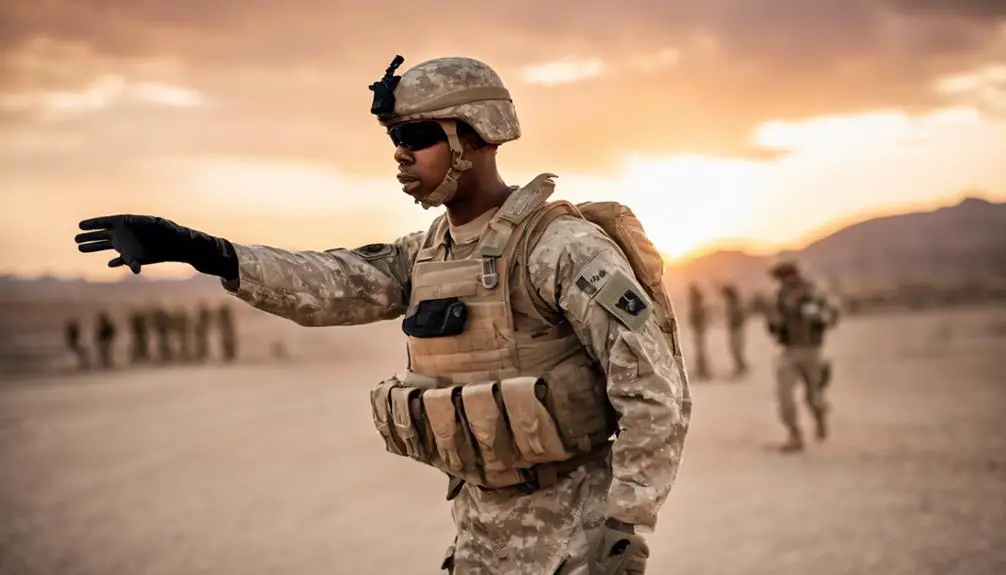When you're saying goodbye to a fellow soldier, you need phrases that convey camaraderie and caution. In the military, farewell phrases like 'Stay frosty' and 'Keep your head down' serve as reminders to stay vigilant, while 'Later, Gator' and 'Catch you on the flip side' soften the blow of saying goodbye during deployments. Tactical departure codes like 'Oscar Mike' and 'Exfil' guarantee safe departures in hostile territories. You'll also hear radio calls like 'Out' or 'Clear' to signal the end of transmission. These unique phrases are an integral part of military culture, and there's more to explore – but for now, consider this just the tip of the iceberg.
Bidding Farewell in the Trenches
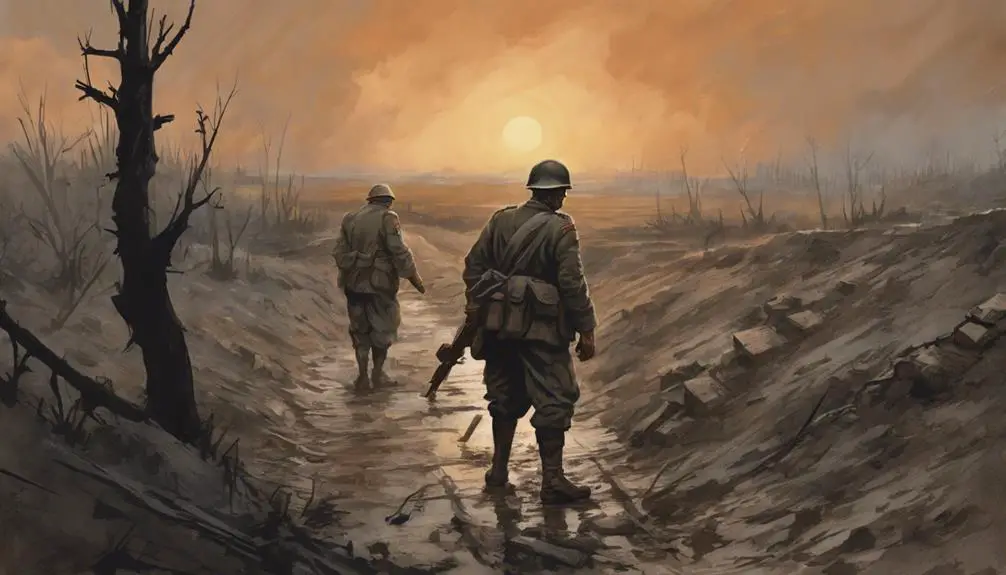
As you prepare to part ways with your comrades in the trenches, you'll likely hear a few distinct phrases that have become synonymous with military goodbyes. These farewell rituals are often laced with a mix of humor, nostalgia, and a dash of emotional detachment. You might hear phrases like 'Stay frosty' or 'Keep your head down' – phrases that serve as a reminder to stay vigilant and focused in the face of danger. These phrases have become an integral part of military culture, serving as a way to bid farewell to comrades while also acknowledging the harsh realities of war. Emotional detachment is key in these situations, as it allows soldiers to maintain a level of professionalism and focus, even in the most emotional of goodbyes. By using these phrases, soldiers can maintain a sense of camaraderie while also acknowledging the uncertainty of their future reunions. As you bid farewell to your comrades, remember that these phrases are more than just words – they're a tribute to the bonds forged in the trenches.
Slang Born on the Battlefield
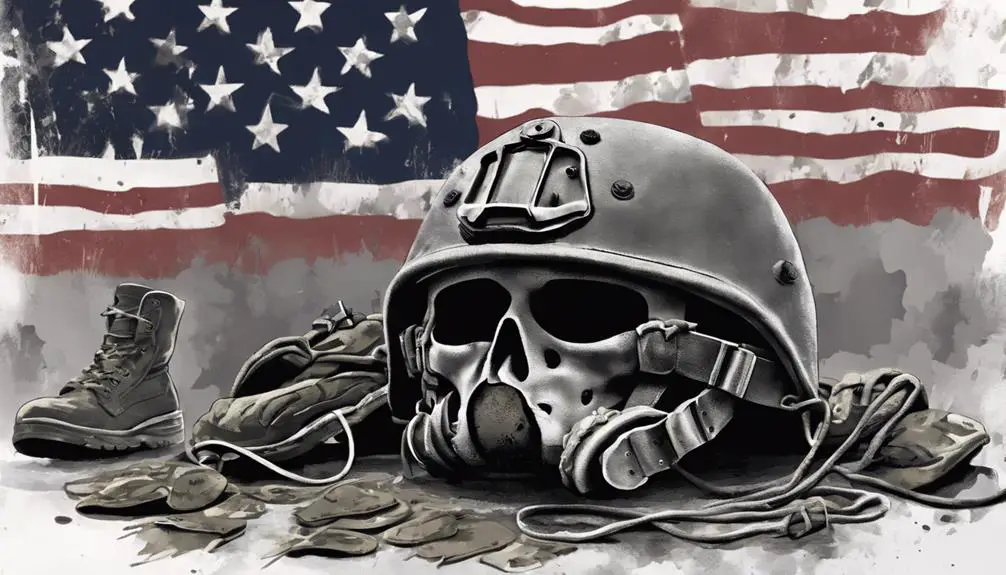
On the battle-scarred fields of war, you've likely heard slang phrases born from the chaos of combat, phrases that serve as a proof to the ingenuity and resilience of soldiers under fire. In the trenches, when every minute counts, communication needs to be swift and efficient. This is where the battle-born dialect comes in – a unique language that emerges from the crucible of combat. It's a language that's concise, direct, and often laced with dark humor. When every word counts, soldiers rely on their combat camaraderie to get the message across. This dialect is forged in the heat of battle, where the stakes are high and the margins for error are slim. In this environment, soldiers develop a shorthand that's both functional and expressive. It's a language that's constantly evolving, adapting to the ever-changing landscape of war. As you navigate the complexities of military slang, you'll discover a rich tapestry of words and phrases that reflect the unique culture of the armed forces.
Later, Gator and Other Classics
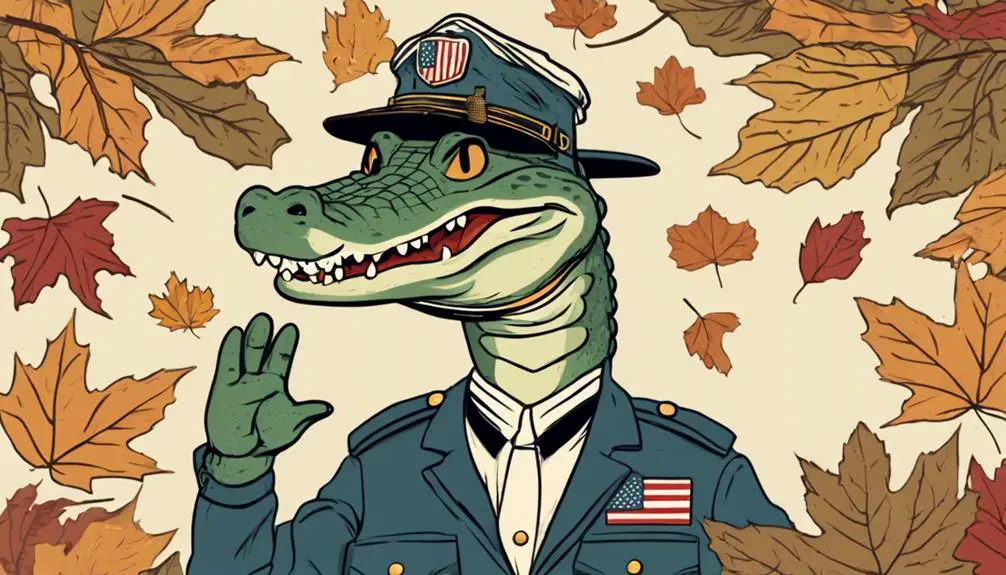
Your military buddies have coined a slew of colorful goodbyes, from 'Later, Gator' to 'Catch you on the flip side,' making parting ways a linguistic adventure. These farewell phrases have become an integral part of military culture, often used during deployment departures to soften the blow of saying goodbye. You've probably heard 'Later, Gator' tossed around, but there are many more where that came from. 'Catch you on the flip side' is another popular one, implying that you'll reconnect when the time is right. 'Hooah' is a more energetic way to bid farewell, often accompanied by a fist bump or a pat on the back. Then there's 'Stay frosty,' which is more of a warning to stay alert and vigilant, even in the face of uncertainty. These phrases have become an essential part of the military lexicon, allowing service members to express their emotions and camaraderie in a unique way.
Code Words for Safe Departure

In high-stakes environments, military personnel rely on code words to signal safe departure, ensuring their comrades are aware of their exit strategy and can adjust their own plans accordingly. You'll often hear these code words used in exit protocols, where a simple phrase can convey vital information about your departure. Tactical farewells, as they're sometimes called, are an essential part of military communication.
When you're operating in hostile territory, every second counts, and using code words can mean the difference between life and death. These code words are often specific to each unit or operation, and they're usually chosen for their clarity and brevity. You might hear something like 'Oscar Mike' to indicate you're moving out, or 'Exfil' to signal your extraction. Whatever the code word, its purpose is to convey a clear message to your team, ensuring a smooth and safe departure.
Radio Calls for Goodbye
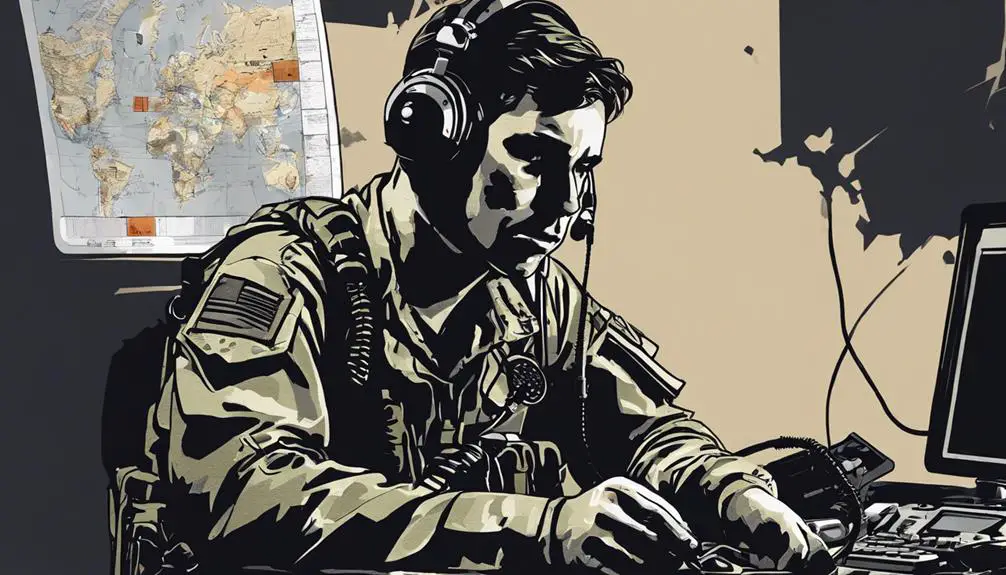
When you're about to sign off, radio calls for goodbye can be as simple as 'Out' or 'Clear' to let your team know you're ending transmission. These brief phrases serve as a notification that you're clearing frequencies, making way for others to use the channel. In high-pressure situations, every second counts, and using concise radio calls like 'Out' or 'Clear' saves time and minimizes confusion.
In situations where silence is essential, breaking silence with a radio call can be risky. That's why 'Out' or 'Clear' are often preferred over longer goodbyes. These calls are also used to confirm that the transmission is ending, ensuring that all parties are on the same page. By using these concise calls, you can quickly and effectively end your transmission, allowing others to take over the frequency. Remember, in military communication, brevity and clarity are key, and using 'Out' or 'Clear' can mean the difference between success and failure.
Soldier Slang for Parting Ways
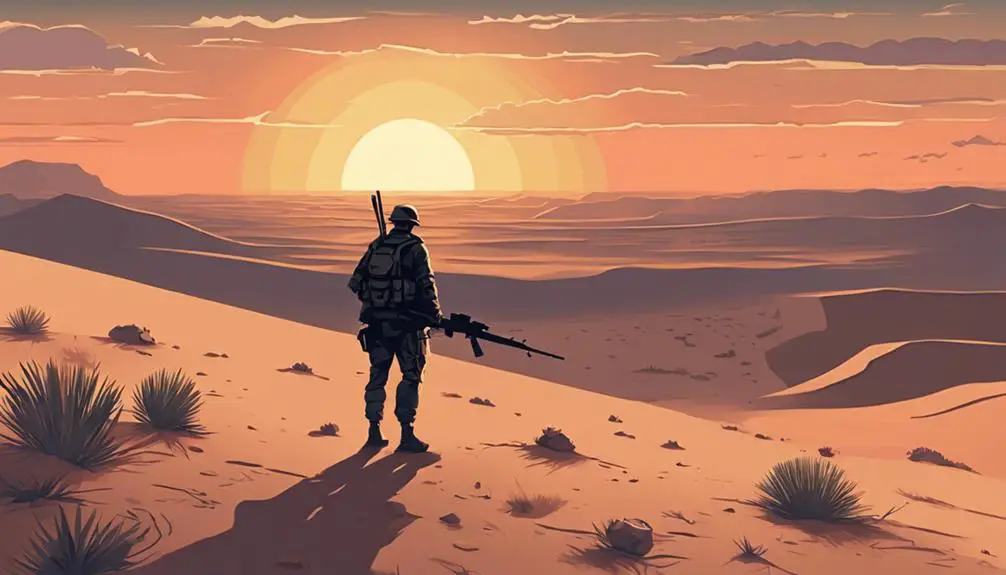
How do soldiers bid each other farewell in the field, where every second counts and secrecy is paramount? When you're leaving squad, you need a way to say goodbye that's quick, quiet, and secure. That's why soldiers have developed their own slang for parting ways.
You might hear a buddy say 'Later, tater' or 'Catch you on the flip side' as they're heading out. These phrases are more than just casual expressions – they're a way to maintain operational security while still showing respect for your fellow soldier. When you're in the field, you can't afford to draw attention to yourself, so a simple 'See you later' or 'Take care' just won't do.
In a high-stress environment, a final farewell can be a critical moment. It's a chance to acknowledge the bond you've formed with your fellow soldiers and to wish them well. Whether you're moving on to a new mission or heading back to base, a soldier's slang for goodbye is more than just a phrase – it's a way to show respect, camaraderie, and a deep understanding of the risks and sacrifices you've shared.
Phrases From the Front Lines
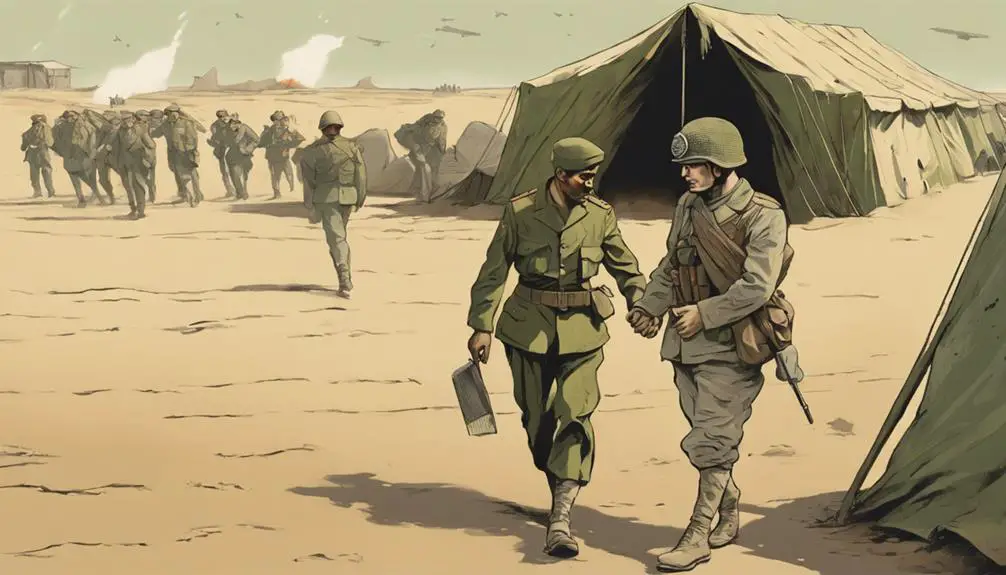
You've likely heard phrases like 'Deuces' or 'Laters, gators' tossed around by soldiers, but there are many more creative ways to bid farewell in the field. Phrases born from warrior wisdom, forged in the heat of battle, and strengthened by battle bonds. In the chaos of combat, soldiers often rely on quick, informal goodbyes to maintain focus on the mission. 'Catch you on the flip side' or 'See you on the other side' are popular phrases that convey a sense of temporary separation, acknowledging the uncertainty of war. 'Later, tater' and 'Toodles' are playful ways to part ways, injecting a touch of humor into an otherwise tense environment. These phrases serve as more than just casual farewells; they're a reflection of the strong bonds forged between comrades-in-arms. As you explore further into military slang, you'll uncover a rich tapestry of expressions that reveal the intricacies of military culture.
Military Lingo for Last Words
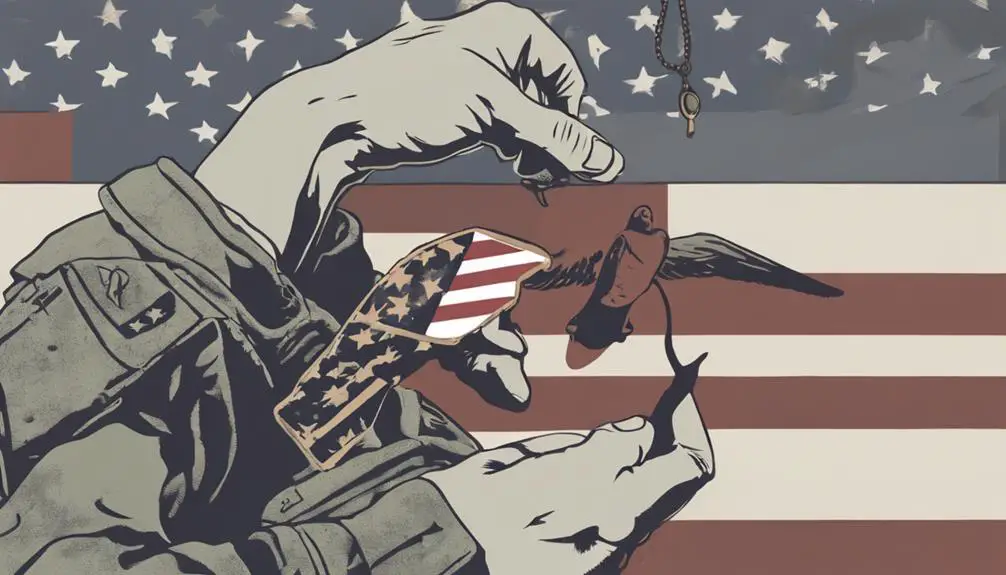
In the face of uncertainty, soldiers often turn to military slang to convey their final words, using phrases that are both poignant and practical. You've probably heard of 'Hooah' or 'Oorah,' but there are more phrases that soldiers use to bid farewell or express solidarity in the face of uncertainty.
When parting ways, you might hear 'Til next patrol,' a phrase that acknowledges the unpredictability of war while conveying a sense of hope and resilience. It's a way of saying 'goodbye' without actually saying it, leaving room for the possibility of a future reunion. Another phrase, 'final formation,' is often used to signal the end of an operation or a soldier's last stand. It's a phrase that's both practical and poignant, conveying a sense of finality while honoring the bonds of camaraderie.
These phrases are more than just words – they're a tribute to the strength and solidarity that defines military culture. As you learn more about military slang, you'll discover that even in the face of uncertainty, soldiers find ways to convey emotion, solidarity, and hope.
Signing off With Camaraderie
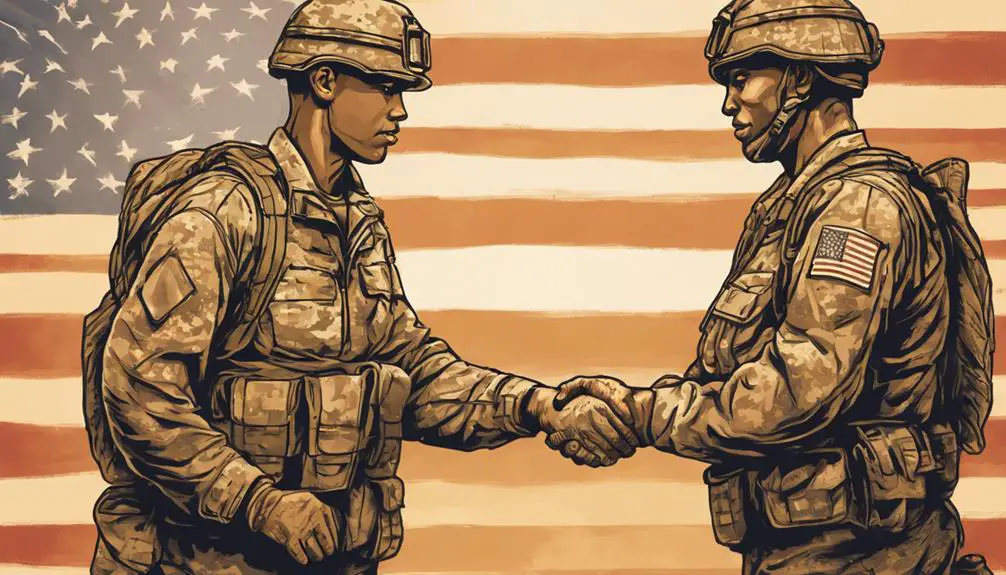
When saying goodbye, soldiers often rely on phrases that convey a sense of camaraderie, such as 'Stay frosty,' which acknowledges the uncertainty of war while expressing a sense of solidarity. You might hear phrases like 'Keep your head down' or 'Watch your six' – phrases that not only bid farewell but also offer words of caution and support. These final farewells are more than just casual goodbyes; they're a way to look out for one another, even when you're apart. As you prepare to part ways, you might exchange last salutes, a gesture of respect and appreciation for the bond you've formed. These gestures are especially meaningful in high-stress environments, where the uncertainty of war can be overwhelming. By using phrases that convey camaraderie, you're reminding your fellow soldiers that they're not alone, even in the most challenging of situations.
Frequently Asked Questions
Is Military Slang for Goodbye Used by All Branches of the Military?
You might assume that a single military slang term for goodbye is universally used across all branches. However, that's not the case. The evolution of military slang over time has been shaped by cultural influences, resulting in varying terminology across different branches. For instance, the Army and Marines use "laters," while the Navy and Coast Guard prefer "catch you later." The Air Force, on the other hand, uses "later, gator."
Can Civilians Use Military Slang for Goodbye in Casual Conversation?
You've got a million ways to bid farewell, but can you really use military slang to sound cooler? While it's tempting, cultural appropriation concerns arise when civilians adopt military lingo without understanding its context. Using military slang to seem edgy can come across as disingenuous. Instead, consider the origins and nuances of the phrase before dropping it into casual conversation.
Are There Regional Differences in Military Slang for Goodbye?
You may wonder if regional differences exist in military slang for goodbye. Indeed, they do. Across different countries, regional variation in military slang for goodbye is evident. Cultural influence plays a significant role, shaping the unique expressions used in various regions. For instance, in the US, "laters" or "catch you later" are common, while in the UK, "cheerio" or "all the best" are preferred.
How Do Military Personnel Choose Which Slang to Use for Goodbye?
You're probably used to saying goodbye with a casual "see you later" or a hasty "gotta run," but for military personnel, choosing a farewell phrase is a more deliberate process. Formal farewell options, like "until next time" or "stay safe," are often reserved for official settings. However, personal preference factors, such as unit culture and camaraderie, can influence which slang you use, like "later, gator" or "catch you on the flip side."
Are There Any Military Slang Words for Goodbye Specific to Certain Wars?
You're wondering if certain wars have their own unique slang for goodbye. Yes, they do! During the Vietnam era, you'd often hear "later, gator" as a casual way to bid farewell. In contrast, World War II saw the phrase "so long, pal" become a popular way to part ways. These phrases not only served as a way to say goodbye but also reflected the tone and atmosphere of their respective eras.

